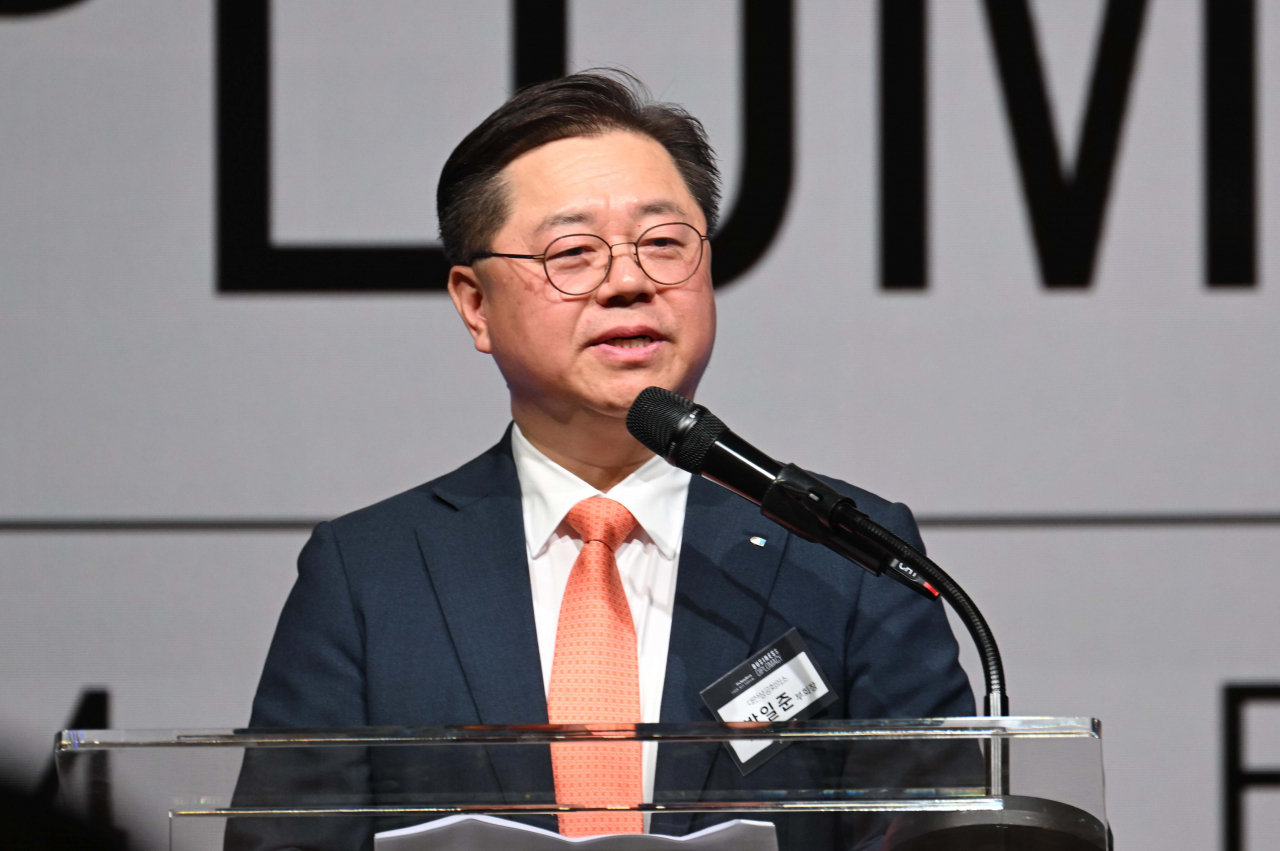
 |
| Park Il-joon, vice chairman of the Korea Chamber of Commerce and Industry, delivers his congratulatory speech at The Korea Herald HIT Forum held at the KCCI headquarters in Seoul on Thursday. (Lee Sang-sub/The Korea Herald) |
With the upcoming US presidential election posing as a critical juncture in global trade, Team Korea should join forces to come up with strategies tailored to major industries and boost outreach, Korea Chamber of Commerce and Industry Vice Chairman Park Il-joon said Thursday.
"Policies of the two major parties in the US (the Republican Party and Democratic Party) differ greatly, especially in the industries where Korea holds an edge, such as energy, semiconductors, batteries and vehicles," Park said in his congratulatory speech at The Korea Herald HIT Forum held at the KCCI headquarters in Seoul. "So Korean companies should thoroughly prepare for plans and strategies tailored to the differences."
Citing the possibility of radical changes to come in US industrial policies, such as the introduction of a universal baseline tariff and scrapping of the Inflation Reduction Act, Park said it is crucial for Korean companies and the government to work together to come up with proper measures to minimize negative impacts from the changes.
"With the country being Korea's bona fide largest economic ally, those changes would obviously affect the investment plans and the value chains of Korean companies," Park said.
Park predicted "America first" policies will expand regardless of the election results, while national rivalries in advanced technology sectors will escalate in the coming years.
Against this backdrop, companies in different industries and the government should team up to navigate geopolitical uncertainties and create more opportunities, Park said.
“Recently, Korean companies are launching new entities in charge of global relations to boost their capability, but it is difficult for an individual firm to cover the expansive US society alone,” the vice chairman said.
“So companies across industries and sectors should work together, with government support in the back.”
The vice chairman said it is important to “accurately” assess the economic and social contributions Korean firms are making in the US.
According to Park, Korea's foreign direct investment in the US marked $175.3 billion in the past 10 years. Korean companies have about a combined 2,500 offices across the US, and are contributing to US society not only by creating jobs, but also with their donations, Park added.
“KCCI will also actively support Korean companies in their economic diplomacy. We will carry out joint business projects with our counterparts, such as AmCham, the US National Association of Manufacturers, Korean American Chamber of Commerce USA, and create various networking events and deploy economic delegations,” Park said.
Park served as second vice trade minister before he was appointed to the full-time vice chairman position in April this year.









